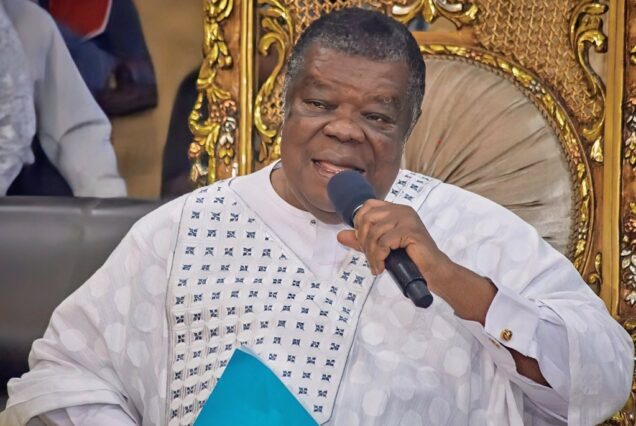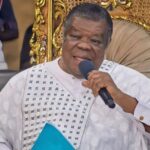By Amofokhai Williams
When the sun dipped below the horizon on 6 October 2025, it took with it one of Africa’s most enduring lights of faith, Rev. Dr. Uma Ukpai. His passing marked the end of an era, but his voice, vision, and victories will echo through eternity. For over five decades, this Ohafia-born evangelist blazed a trail that shaped Nigerian Christianity and left an indelible mark on the global Pentecostal movement.
Born on 7 January 1945 in Asaga, Ohafia, Abia State, young Uma’s journey was carved from adversity. Orphaned of his father at just ten, he quickly learned the language of survival. He once recalled: “I know what it means to lose a father and be a father from that age. I learnt early that the stone Satan throws at you can become a stepping stone.” Those early trials birthed in him not bitterness, but compassion, a divine empathy that became the foundation of his life’s work.
From Uma Ukpai Memorial Primary School in his hometown to All Saints Secondary School, Aba, and later to academic sojourns in the United Kingdom and the United States, Ukpai pursued education with relentless determination. He studied journalism, electrical engineering, and theology, a blend that would later give his ministry both intellectual depth and spiritual power. He earned degrees from South Florida Christian College, Carolina Christian University, and Burke Bible College, Kentucky, among others, equipping himself for a calling that transcended the pulpit.
Ukpai’s ministry began as a humble outreach but soon blossomed into a transnational movement. Through the Uma Ukpai Evangelistic Association (UUEA), headquartered in Uyo, Akwa Ibom State, he became a bridge-builder across denominations, an apostle of unity in a divided church. His fiery crusades in cities across Nigeria drew multitudes, yet behind the spectacle was a man deeply anchored in love, service, and prayer.
The Greater Lagos for Christ Crusade of 1985 stands as a defining moment in Nigerian church history. It was there that the idea of the Pentecostal Fellowship of Nigeria (PFN) was birthed, a fellowship that would later unify the voices of Pentecostal leaders nationwide. Ukpai’s leadership and generosity were instrumental, as his ministry became one of the PFN’s major financiers.
But Rev. Ukpai’s gospel went beyond the pulpit. His compassion took form in hospitals, schools, and scholarships. As chairman of the Uma Ukpai Eye Centre and King of Kings Hospital in Abia State, he provided healthcare to the needy across Abia, Akwa Ibom, and Cross River States. Through the Uma Ukpai Scholarship Foundation, he empowered countless indigent students. His School of Theology and Biblical Studies and Polytechnic in Asaga became training grounds for future leaders.
The evangelist’s compassion was not theoretical, it was born of personal loss. He and his wife, Pastor Philomena, shared a profound love that produced eight children and one adopted child. The tragic death of two of their children in the same accident was a heartbreak that might have shattered another man. But Ukpai, forged in adversity, turned his grief into renewed ministry strength, declaring that God’s faithfulness is not measured by circumstances but by eternity.
In over fifty nations, his booming voice declared the message of salvation, healing, and deliverance. From the Greater Ibadan for Christ Crusade (1982) to the Anioma One-Million-Man Crusade (2016), testimonies of blind eyes opened, the lame walking, and shattered lives restored followed his footsteps. He was known for saying, “When God steps into your situation, impossibility becomes comedy.”
To the last, Rev. Ukpai remained tireless, a spiritual father to thousands, a mentor to pastors, and a beacon of humility in a world often distracted by fame. His faith was simple, his smile constant, his heart vast. In his presence, power met peace.
Now, as tributes pour in from across the world, his legacy stands clear. He was not merely a preacher, he was a movement. A builder of men. A healer of bodies. A comforter of the broken.
At 80, Rev. Dr. Uma Ukpai has completed his earthly assignment. But his sermons live on in every healed heart, his compassion in every student he sponsored, and his faith in every believer he led to Christ. The man from Ohafia, who once had nothing, gave the world everything that mattered-hope.
And though his voice is now silent, the echoes of his message still roll across Africa’s skies: Faith can turn pain into power, and love can make the impossible possible.







